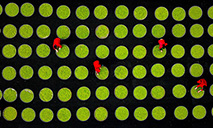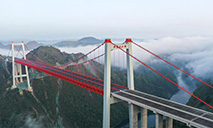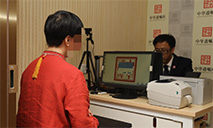How Japanese right-wing forces are taking advantage of Russia-Ukraine conflict
TOKYO, March 30 (Xinhua) -- Right-wing forces in Japan are using the conflict between Russia and Ukraine as an excuse to hype up security threats in the Asia-Pacific region.
Former Japanese Prime Minister Shinzo Abe even openly proposed the idea of "nuclear sharing" between Japan and the United States and claimed that the United States should abandon its "strategic ambiguity" on China's Taiwan.
Experts and analysts believe that right-wing forces in Japan are taking advantage of the Russia-Ukraine conflict to seek military expansion.
Asia-Pacific countries should be vigilant.
CHALLENGING "THREE NON-NUCLEAR PRINCIPLES"
As the only country in the world hit by nuclear weapons, Japan has established the "three non-nuclear principles" of "not possessing, not producing and not permitting the introduction of nuclear weapons" as a foundational policy since the 1970s.
However, Abe suggested in a television program on Feb. 27 that given the Russian-Ukrainian situation, Japan should discuss a "nuclear sharing" policy similar to that of some European NATO members, under which the United States deploys nuclear weapons on allied bases and uses them on allied warplanes in emergency cases.
Sanae Takaichi, head of the ruling Liberal Democratic Party's Policy Research Council, suggested the party rethink the principle of "not permitting the introduction of nuclear weapons" and allow exceptions in emergencies.
The Japan Innovation Party, a right-wing opposition party, has submitted a proposal to Foreign Minister Yoshimasa Hayashi, asking the Japanese government to discuss "nuclear sharing" to strengthen defense capabilities and increase defense spending to 2 percent of the country's gross domestic product.
In response, Japanese Prime Minister Fumio Kishida said the Japanese government adheres to the "three non-nuclear principles" and will not discuss "nuclear sharing," but added that he is not opposed to internal discussions among political parties.
The fresh round of discussions on "nuclear sharing" initiated by Abe and other right-wing elements has drawn domestic criticism.
In an editorial, the Japanese newspaper Asahi Shimbun wrote, "Abe's comment signals a total lack of awareness of Japan's responsibility to the world as the only nation to have experienced atomic warfare."
Takakage Fujita, director general of a civil group dedicated to upholding and developing the well-known Murayama Statement, in which Japan apologies for its past atrocities in the Asia-Pacific region, said that Abe and other right-wing politicians and forces are taking advantage of the Russia-Ukraine conflict to push for "nuclear sharing," which is a violation of Article 9 of Japan's pacifist constitution and should never be tolerated.
Fujita said Japan should reflect on the historical lessons of its past aggression and colonial rule -- a disastrous period for Asian countries -- and adhere to the "three non-nuclear principles."
SEEKING MILITARY EXPANSION
In addition to advocating "nuclear sharing," Abe claimed that the United States should abandon its "strategic ambiguity" policy on China's Taiwan. He also said last December that "a Taiwan emergency is a Japanese emergency, and therefore an emergency for the Japan-U.S. alliance."
Analysts pointed out that Japan regularly uses major international events to justify its military expansion, and the Russia-Ukraine conflict is no different.
Experts said the intention of the right-wing forces represented by Abe is clear -- to provide excuses for violating the spirit of the pacifist constitution and the country's exclusively defense-oriented policy.
The Japan Innovation Party is calling for a national referendum on amending the constitution, while the Liberal Democratic Party is pushing for four amendments, including adding the Self-Defense Forces into Article 9 of the constitution.
However, Article 9, which stipulates that Japan does not maintain war power and renounces the right of belligerency, is the core of the pacifist constitution and the legal cornerstone of Japan's path of peace after World War II.
Fujita said he believes Japan is at a critical juncture, and the outcome of upper house elections in July will influence the issue's trajectory.
Magosaki Ukeru, a former Japanese foreign ministry official, said right-wing forces in Japan are no longer a minority, and Japanese politics have primarily shifted to the right. ■
Photos
Related Stories
- Russian military to significantly reduce hostilities near Kiev, Chernihiv
- Russia, Ukraine end 1st day talks in Istanbul: media
- Putin-Zelensky meeting possible only after agreement ready: Russian chief negotiator
- Russian chief negotiator says talks with Ukraine "constructive"
- U.S. has inescapable responsibilities for Ukraine crisis
Copyright © 2022 People's Daily Online. All Rights Reserved.










